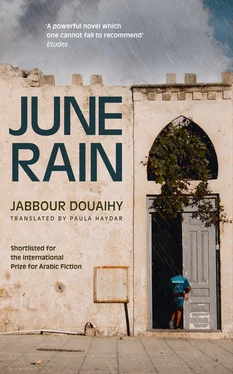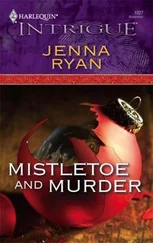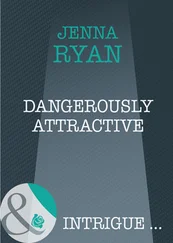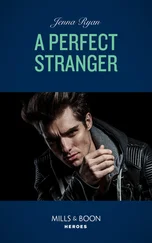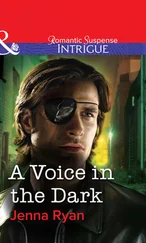On the Feast of Holy Transfiguration, he tested it out but stopped after the third shot because it jammed.
‘Lack of practice!’ shouted one of his friends standing next to him, jokingly. That joke was suited to my father more than anyone else. He wore the gun at his waist for less than a week and then he hid it somewhere in the house. Probably because the gun tired him out, its weight on his waist tired him out. We knew there was a gun in the house, but didn’t know where it was. Every house had a hiding place for guns, because at any time the government might resolve to confiscate all the weapons from people’s houses.
‘You want me to give you my gun?’
The request had surprised him, despite his distaste for weapons.
‘We’ll give it back to you this evening or tomorrow morning… We may need it.’
The fellow with the wart on his left cheek added, ‘You can spare it. Nothing bad will happen to you as long you’re staying here with your wife.’
He didn’t say, ‘As long as you’re staying here with your wife and children.’ He seemed to be trying to insult my father that way. We hadn’t noticed that detail but my mother explained it later, on our way to the Grotto of Qadisha. And truly something stirred inside my father, but not in the expected direction.
He passed by us, red in the face, walking steadily towards the kitchen with signs of a difficult decision written in his eyes. We watched him from where we had gathered to wait for him in the living room. He opened the bread bin, reached deep down to its base, and pulled out the gun in its black leather holster. A hiding place so obvious you’d never think of it. If we had ever used up every last loaf of bread, we would have discovered it.
He came back with the same steady walk. We could see him from behind as he stood at the door.
‘Here you go!’
Later, images that we came across — like those officers in World War II movies who’d been stripped of their ranks by the military court, or the picture in our history book of the French general (who we later found out was Jewish) dressed in colourful clothing as he handed over his sword to another officer to be broken over his knee — these images and many others would remind us of our father as he stood there in the doorway handing over his revolver with one hand to the stocky man and the two clips to the man with the tipped hat with the other, while the bright light of day streamed over the three men and flooded into the living room.
But we children won out. We went on our Sunday outing. It was a warm and sunny day. I have no idea where the rain that fell at the time of the incident came from.
My father drove in silence. Every once in a while, and without realising it — as he said when my mother alerted him to it — he would start going too fast, and so my mother would remind him that all the children were in the back seat. He would slow down a little, only to press down on the accelerator again a little later.
At lunch, too, my father barely said a word. He would let out a boisterous laugh for no real reason and then plunge back into a long silence. Later on he told us he had had a bad feeling that day. When we coaxed him, he would laugh or play with one of us, look at his watch, stop eating, only to become distracted once again.
We came home in the evening. But Farid Badwi al-Semaani, the man with the tipped hat, my father’s paternal cousin who we’d seen standing in our doorway that Sunday morning for the first and last time, did not return. They covered him in a shroud and laid him out in the church courtyard, right in front of the main gate to the Girls’ School. His mother stooped over him, grieving. She waved his silk shirt in the air at times and later wore it herself. Having lost her voice, she began opening her mouth and moving her lips without making any sound. Nazha Murad elegised him, calling him the best tailor that ever was, the maker of the finest suits.
The stocky eloquent Ayyoub is still alive today. He had been shot in the mouth and thigh and was counted among the casualties in the Telegraph newspaper that came out the next day. He passed out for a few hours from loss of blood, but then he came round. Ayyoub was also my father’s cousin, but he only dropped by our house from time to time.
At any rate, they all became cousins after the incident.
As for us, the news about us spread quickly. Us, meaning my father. His sin was the outing to Qadisha. And my mother.
We girls — my sister and I — kept the harsh words that were sometimes slung at us to ourselves. My ten-year-old brother couldn’t bear those sharp arrows. He didn’t understand. One day he came home early, before sunset — his usual curfew. He slammed every door to express his anger.
‘Open the door, Munir.’
We gathered in front of the bedroom door. He had locked it with the key from the inside. We could hear nothing but pounding on the walls, either from his fists or his head. We were worried about him. We threatened to break the door down if he didn’t speak.
But in the face of his stubbornness we chose to keep pleading with him and questioning him until he finally came out with a question. ‘I want to know…’
We seized the opportunity and encouraged him. ‘What do you want to know?’
‘Tell me now, right now. Where is my father’s gun?’
When we weren’t able to answer him, he stamped his feet. ‘Who took it?’
My father’s gun hadn’t returned that day, and no one asked to have it back, out of embarrassment. My father had been told that whoever had been using it tossed it onto the ground when it ran out of bullets, in order to pull out his second gun, and then it got lost. Then later someone came and told him that his gun was not actually lost but was still with one of his relatives. He didn’t think anything of it. Of course, the suspicions surrounding Ayyoub continued, but Ayyoub was immune to questions because of the wounds he suffered: three bullets to the body.
At any rate, my father was willing to forfeit his gun as the price for his absence.
Munir resumed his pounding on the wall. We found out that his friends didn’t want to play with him. They wouldn’t let him play war, the only game they knew and which they played with weapons made out of reeds and gun sounds made with their mouths. They wouldn’t allow him to be a soldier, of course, or even an outlaw, on the basis that his father was scared to shoot his own gun. He even begged them to let him be a guard at the prison they made for outlaws trying to escape justice, but they were adamant. He stamped his feet in anger, burst into tears and hurried home to take it out on us.
We girls, in turn, divulged everything that had happened to us. They had accused my mother of ceasing to wear black mourning clothes after only three months of bereavement and they complained that none of her daughters wore mourning clothes at all, even though we were mature ‘young women’, as they would say.
My father came home a little later. We told him Munir had locked himself in the bedroom. He smiled and went to the door.
‘Munir?’
‘What’s my name?’
My brother’s question surprised us all. My father laughed and answered him pompously, ‘Munir Hamid Jirjis al-Semaani.’
‘No it isn’t…’
‘What do you mean, no it isn’t?’
‘No it isn’t.’
‘What’s your name, then?’
‘They say we are not Semaanis…’
That particular accusation had not been levelled at Munir that same day. He was unburdening himself of all the insults he’d been subjected to.
‘Who says that to you?’ my father asked him with the tone of a vanquished man. He quickly understood what was happening.
‘My friends…’
‘They said this to you today?’
Читать дальше
